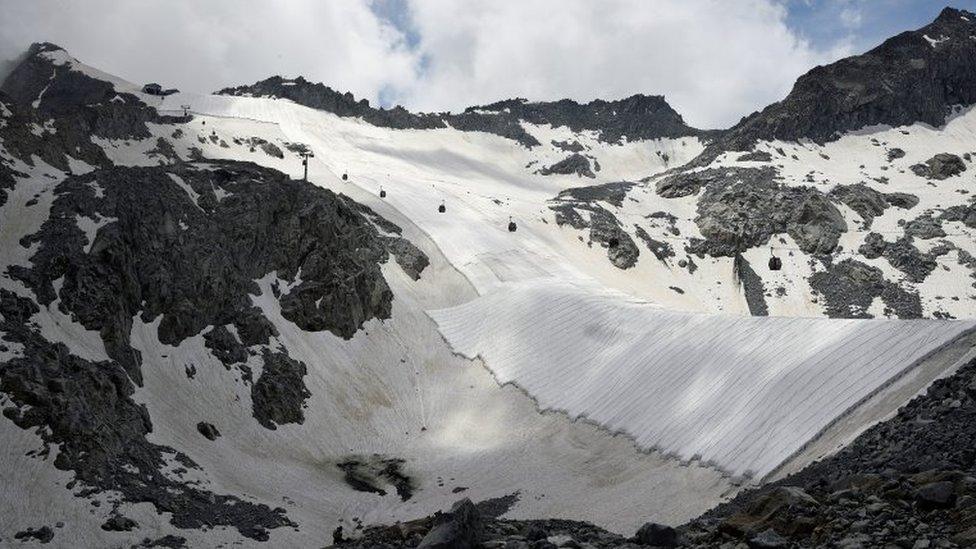Climate change: The conservationists 'tucking in' glaciers for the summer
- Published
- comments

A group of conservationists are 'tucking in' glaciers with special blankets to protect them from melting.
Since 2008, every year conservationists have been covering the Presena glacier in northern Italy with huge cloth sheets.
These sheets are made from a special reflective material called a "geotextile" which reflects the sun's rays to help prevent the snow beneath from melting. It works a bit like the foil sheets people sometimes use in car windows to stop them from getting too hot.
The conservationists say about 70 percent of the snow can be saved over the summer by using the protective blankets.
The blankets are five metres-wide and 70 metres-long, and each one is sewn together and weighted in place so it doesn't blow away. In total they cover around 120,000 square metres of the glacier.
Covering this much of the glacier is no easy task and can take between a month and six weeks for the team to complete.
The conservationists put the blankets on at the end of the ski season, and take them off again in September ready for the cooler temperatures and winter snow to fall.
A glacier is a huge sheet of slowly moving ice.
The name glacier comes from the French word 'glace' which means ice.
There are two types of glaciers: Alpine glaciers, which form on mountains, and ice-sheets, which form on flat lands and valleys.
Climate change: Why are glaciers and icebergs important?
The volume of the Presena glacier has shrunk by more than a third since 1993.
"Glaciers and their retreat are perhaps the most striking manifestation of ongoing global warming," said glaciologist (a scientist who studies glaciers) Christian Casarotto of Trento science museum.
"Studying glaciers therefore becomes important in order to understand the direction in which we are heading and to be able to correct it," he added.
- Published8 October 2018
- Published15 February 2021
- Published21 August 2019
